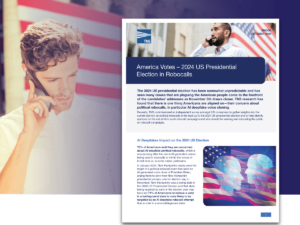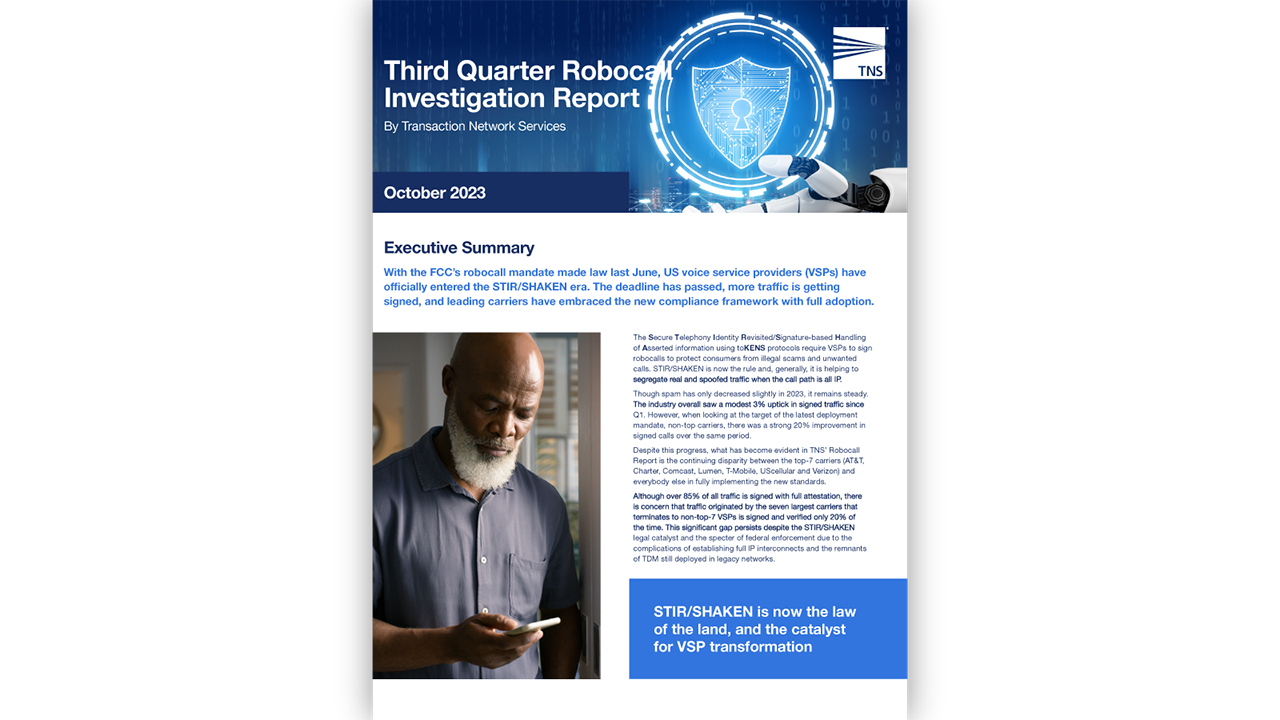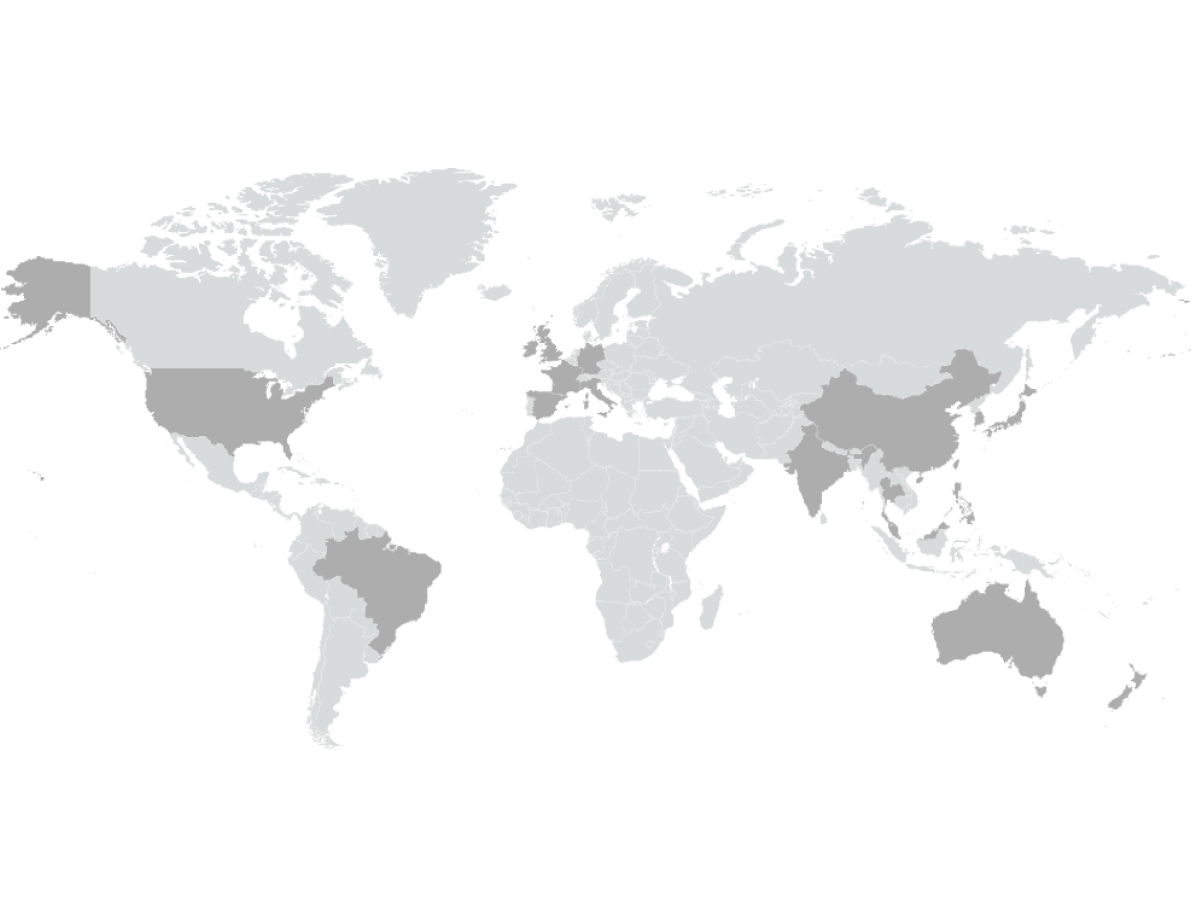Transaction Network Services (TNS) today launched its Q3 2023: Robocall Investigation Report. The latest report shows continued momentum by Tier-1 carriers in the fight against robocalls, but challenges remain when it comes to their signed STIR/SHAKEN voice traffic being terminated to smaller service provider networks.
The latest edition of TNS’ Robocall Investigation Report, which includes the most accurate robocall data from Q3 2023, is available to download now. With the catalyst of the final FCC-mandated June 30, 2023 STIR/SHAKEN implementation date, the report shows an improvement in voice traffic getting signed and broader carrier implementation of the STIR/SHAKEN framework. TNS observed a modest 3% improvement in total signed calls compared to the prior quarter; however, traffic from non-top seven carrier networks experienced over 20% improvement in total signed calls with the passing of the June 30th deadline.
The Q3 2023: TNS Robocall Investigation Report also includes several new insights:
- Carriers make broad-based progress signing calls. When call traffic is originated by and sent to top carriers, over 85% of that traffic is signed with the highest level of attestation. Full Attestation (A) signed traffic is when the caller and phone number is authenticated by the service provider. Smaller carriers also showed a tangible improvement as their total volume of signed traffic increased by 20% for the second quarter in a row.
- Large to small carrier signed traffic remains low. A disparity remains between the signed traffic capabilities of the top seven carriers (Verizon, UScellular, T-Mobile, Lumen, Comcast, Charter and AT&T) and the other providers. TNS observed that when traffic originates from a Tier-1 carrier and is terminated to a smaller carrier, only one in five of those calls arrive as signed. This represents a vast difference to traffic shared between the top carriers.
- Bad actors tap AI and policy changes for robocall scams. AI voice cloning technology is the latest weapon being used by scammers to trick consumers out of their money and personal information. Q3 2023 also saw bad actors capitalizing on confusion surrounding student loan debt relief. Americans received nearly as many student loan-related robocalls in the month of September as they had in the prior four months combined.
- VoIP networks remain the top robocall originator. VoIP networks are the primary line type where unwanted traffic originates to consumers. But TNS’ report finds progress is being made. Less than 20% of traffic originating on these lines was signed in 2022. In Q3 2023, nearly 60% of the traffic was signed.
“On the heels of the final STIR/SHAKEN implementation mandate, carriers continue to make improvements when it comes to signing traffic, a critical prerequisite for limiting the overall volume of spoofed and unwanted robocalls,” said Denny Randolph, President of TNS Communications Market. “However, IP interconnectivity, peering and termination complexities can negatively impact signed call traffic from top carriers to smaller providers – undermining the full potential that STIR/SHAKEN and robocall mitigation efforts can deliver to consumers.”
TNS supports more than 125 service providers in North America including four of the top seven US carriers and two of the top four wireless providers. With TNS’ reach extending to nearly 250 million active subscribers, TNS has an unsurpassed ability to categorize and properly attribute incoming calls as it has access to the largest pool of call events. This visibility is key to differentiating between legitimate robocall activity and scams.
The Q3 2023: TNS Robocall Investigation Report is available to download now.
Get the Latest Copy of Our Exclusive Report
Discover the latest robocall trends, tactics and solutions and prepare for the future of the industry.





